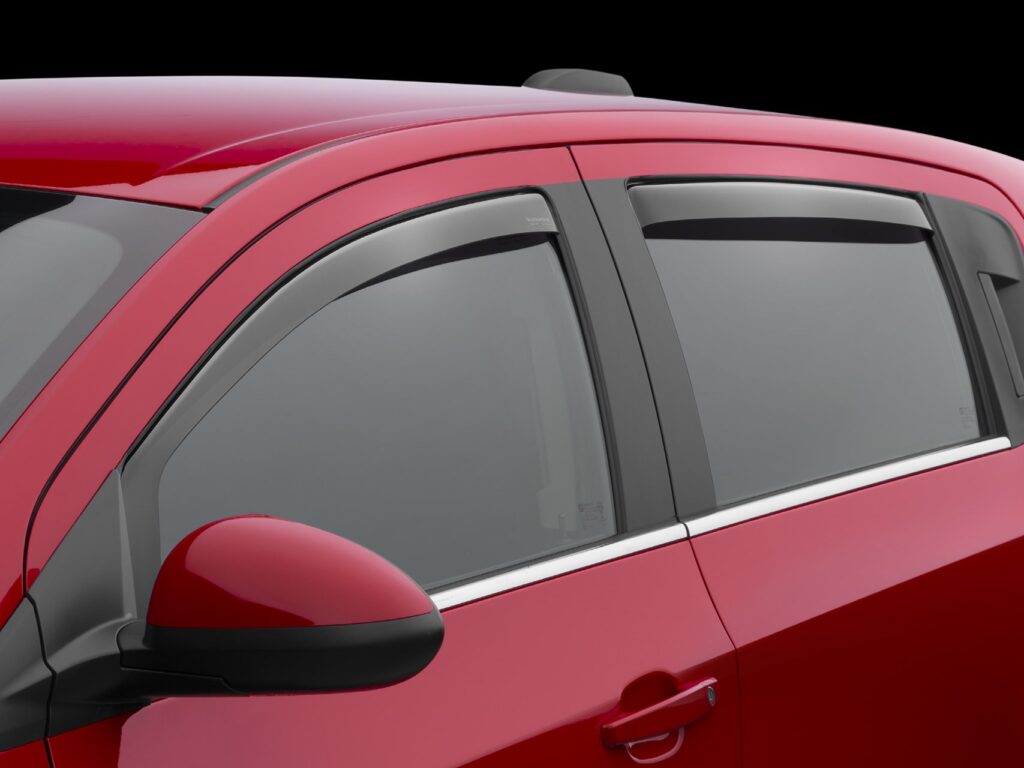Car window tints serve various purposes, from enhancing privacy and reducing glare to protecting occupants from harmful UV rays and heat. However, each state in the United States has its own regulations regarding the legality and limits of window tints. You may wonder if window tints are illegal in Massachusetts. In this article, we will delve into the laws surrounding car window tints in Massachusetts and explore the permissible limits to help you stay on the right side of the law.
Window Tinting In Massachusetts
Like many states, Massachusetts has specific laws governing window tints on vehicles. These laws are in place to ensure the safety of both drivers and law enforcement officers. Understanding these regulations is crucial to avoid potential fines or legal issues.
The darkness of a window tint is represented by its Visual Light Transmission (VLT) level. As the name implies, this number describes how much light the film allows to pass through it. A film with a tint level of 5% will only let in 5% of light and look super dark.
Massachusetts can set different tint level limits for sedans compared to SUVs and vans and can have different limits for specific windows.
For sedans, the limits are:
- Windshield. Non-reflective tint is allowed on the AS-1 line or the top 6 inches of the windshield.
- Front Side Windows. Must allow more than 35% of light in.
- Rear Side Windows. Must allow more than 35% of light in.
- Rear Window. Must allow more than 35% of light in.
For SUVs and Vans, the limits are as follows:
- Windshield. Non-reflective tint is allowed on the AS-1 line or the top 6 inches of the windshield.
- Front Side Windows. Must allow more than 35% of light in.
- Rear Side Windows. Must allow more than 20% of light in.
- Rear Window. Must allow more than 20% of light in.
Along with a limit on how dark a tint can be, the State government sets a limit on how reflective a tint film can be. This is particularly important if you are looking for metallized tints or anything else that is particularly reflective.
For sedans, SUVs, and Vans, the reflective limit is:
- Front Side Windows. Must not be more than 35% reflective.
- Rear Side Windows. Must not be more than 35% reflective.
Unlike some states, Massachusetts does not restrict you from any tint colors, allowing you to customize to your heart’s content.
Enforcement and Penalties
Law enforcement officers in Massachusetts will be vigilant for any window tint infractions. Your tints will also have a check performed during your annual inspection. If you violate the window tinting laws, you may face consequences such as fines and the requirement to remove the tint.
The specific penalty for these window tint violations will be up to $250. Additionally, if you have multiple citations, you may deal with a 90-day suspended license after your third offense.
It is possible to legally drive with tints darker than the legal limit. This, however, requires that you receive a medical exemption. These exemptions will be typically granted to those who suffer from a medical condition that causes photosensitivity and requires you to have darker tints so that you can better see the road.
Install Window Tints in Massachusetts
In Massachusetts, car window tints are not illegal, but they are subject to specific regulations designed to maintain road safety. Understanding these limits is crucial to ensure that you comply with the law and avoid potential fines or legal issues.
Remember that these regulations can change over time, so staying informed about any updates to Massachusetts’ window tint laws is essential.
If you are looking to install new car window tints or simply want more information, please don’t hesitate to contact the talented team at ProCarSound&Security, who will be more than happy to assist you in any way they can.








